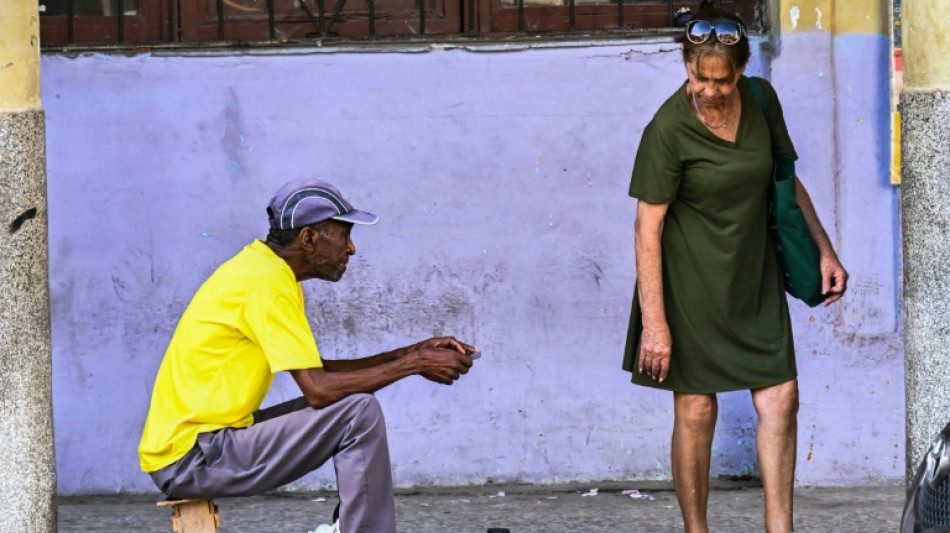
-
 Napoli beat Milan in Italian Super Cup semi-final
Napoli beat Milan in Italian Super Cup semi-final
-
Violence erupts in Bangladesh after wounded youth leader dies

-
 EU-Mercosur deal delayed as farmers stage Brussels show of force
EU-Mercosur deal delayed as farmers stage Brussels show of force
-
US hosting new Gaza talks to push next phase of deal
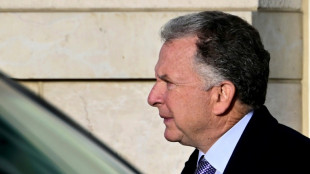
-
 Chicago Bears mulling Indiana home over public funding standoff
Chicago Bears mulling Indiana home over public funding standoff
-
Trump renames Kennedy arts center after himself

-
 Trump rebrands housing supplement as $1,776 bonuses for US troops
Trump rebrands housing supplement as $1,776 bonuses for US troops
-
Harrison Ford to get lifetime acting award

-
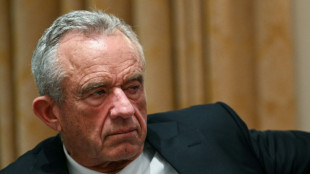 Trump health chief seeks to bar trans youth from gender-affirming care
Trump health chief seeks to bar trans youth from gender-affirming care
-
Argentine unions in the street over Milei labor reforms
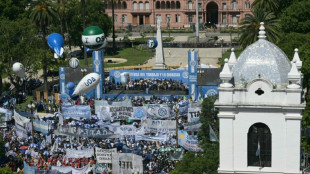
-
 Trump signs order reclassifying marijuana as less dangerous
Trump signs order reclassifying marijuana as less dangerous
-
Famed Kennedy arts center to be renamed 'Trump-Kennedy Center'

-
 US accuses S.Africa of harassing US officials working with Afrikaners
US accuses S.Africa of harassing US officials working with Afrikaners
-
Brazil open to EU-Mercosur deal delay as farmers protest in Brussels

-
 Wounded Bangladesh youth leader dies in Singapore hospital
Wounded Bangladesh youth leader dies in Singapore hospital
-
New photo dump fuels Capitol Hill push on Epstein files release

-
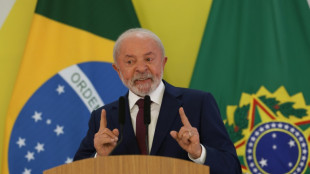 Brazil, Mexico seek to defuse US-Venezuela crisis
Brazil, Mexico seek to defuse US-Venezuela crisis
-
Assange files complaint against Nobel Foundation over Machado win

-
 Private donors pledge $1 bn for CERN particle accelerator
Private donors pledge $1 bn for CERN particle accelerator
-
Russian court orders Austrian bank Raiffeisen to pay compensation
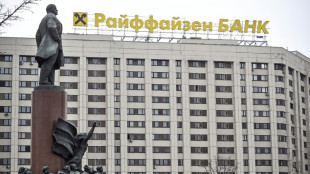
-
 US, Qatar, Turkey, Egypt to hold Gaza talks in Miami
US, Qatar, Turkey, Egypt to hold Gaza talks in Miami
-
Lula open to mediate between US, Venezuela to 'avoid armed conflict'

-
 Brussels farmer protest turns ugly as EU-Mercosur deal teeters
Brussels farmer protest turns ugly as EU-Mercosur deal teeters
-
US imposes sanctions on two more ICC judges for Israel probe
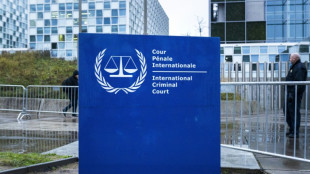
-
 US accuses S. Africa of harassing US officials working with Afrikaners
US accuses S. Africa of harassing US officials working with Afrikaners
-
ECB holds rates as Lagarde stresses heightened uncertainty
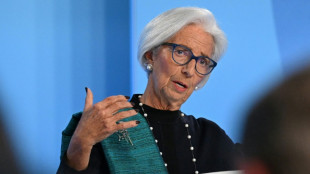
-
 Trump Media announces merger with fusion power company
Trump Media announces merger with fusion power company
-
Stocks rise as US inflation cools, tech stocks bounce
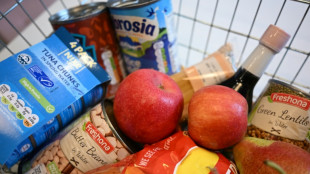
-
 Zelensky presses EU to tap Russian assets at crunch summit
Zelensky presses EU to tap Russian assets at crunch summit
-
Pope replaces New York's Cardinal Dolan with pro-migrant bishop
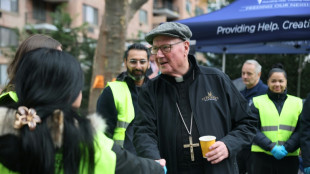
-
 Odermatt takes foggy downhill for 50th World Cup win
Odermatt takes foggy downhill for 50th World Cup win
-
France exonerates women convicted over abortions before legalisation
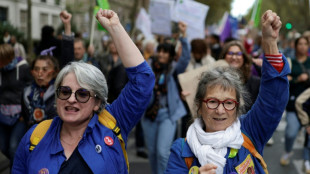
-
 UK teachers to tackle misogyny in classroom
UK teachers to tackle misogyny in classroom
-
Historic Afghan cinema torn down for a mall
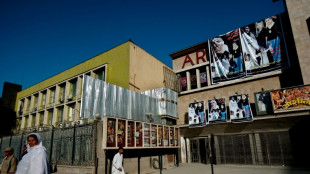
-
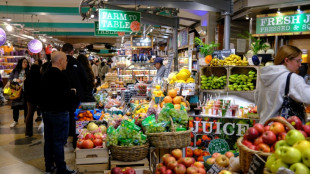 US consumer inflation cools unexpectedly in November
US consumer inflation cools unexpectedly in November
-
Danish 'ghetto' residents upbeat after EU court ruling
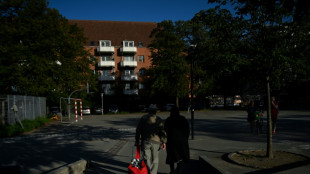
-
 ECB holds rates but debate swirls over future
ECB holds rates but debate swirls over future
-
Pope replaces New York's Cardinal Timothy Dolan with little-known bishop
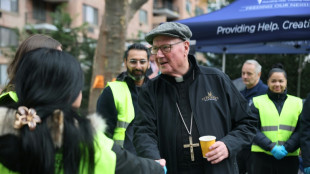
-
 Bank of England cuts interest rate after UK inflation slides
Bank of England cuts interest rate after UK inflation slides
-
Have Iran's authorities given up on the mandatory hijab?

-
 Spain to buy 100 military helicopters from Airbus
Spain to buy 100 military helicopters from Airbus
-
US strike on alleged drug boat in Pacific kills four

-
 Thailand strikes building in Cambodia's border casino hub
Thailand strikes building in Cambodia's border casino hub
-
Protests in Bangladesh as India cites security concerns
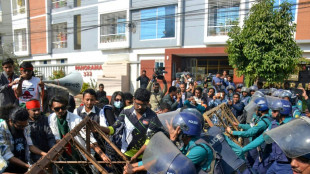
-
 European stocks rise before central bank decisions on rates
European stocks rise before central bank decisions on rates
-
Tractors clog Brussels in anger at EU-Mercosur trade deal
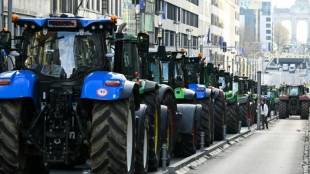
-
 Not enough evidence against Swedish PM murder suspect: prosecutor
Not enough evidence against Swedish PM murder suspect: prosecutor
-
Nepal's ousted PM Oli re-elected as party leader

-
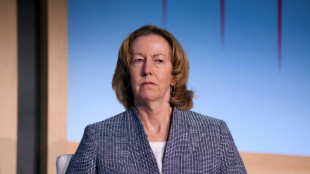 British energy giant BP extends shakeup with new CEO pick
British energy giant BP extends shakeup with new CEO pick
-
Pulitzer-winning combat reporter Peter Arnett dies at 91


'Survive, nothing more': Cuba's elderly live hand to mouth
With a monthly pension barely sufficient to buy 15 eggs or a small bag of rice, Cuba's elderly struggle to make ends meet in one of Latin America's poorest and fastest-aging countries.
As the communist island battles its deepest economic crisis in three decades, the state is finding it increasingly hard to care for some 2.4 million inhabitants -- more than a quarter of the population -- aged 60 and over.
Sixty is the age at which women -- for men it's 65 -- qualify for the state pension which starts at 1,528 Cuban pesos per month.
This is less than $13 at the official exchange rate and a mere $4 on the informal street market where most Cubans do their shopping.
"Fight for life, for death is certain," vendor Isidro Manuet, 73, told AFP sitting on a sidewalk in the heart of Havana, his skin battered by years in the sun, several of his front teeth missing.
"I manage to live, survive, nothing more," he said of his meager income that allows him to buy a little food, and not much else.
As he spoke to AFP, Manuet looked on as small groups of people walked by his stall carrying bags full of food.
They were coming out of Casalinda, one of several part government-run megastores that sells goods exclusively to holders of US dollars -- a small minority of Cubans.
Most rely instead on informal stalls such as the ones Manuet and other elderly Cubans set up on sidewalks every morning to sell fruit, coffee, cigarettes, candy, used clothes and other second-hand goods.
- 'Things are bad' -
Near Manuet's stall, 70-year-old Antonia Diez sells clothing and makeup.
"Things are bad, really bad," she sighs, shaking her head.
Many of Cuba's elderly have been without family support since 2022, when the biggest migratory exodus in the country's history began amid a crisis marked by food, fuel and medicine shortages, power blackouts and rampant inflation.
More beggars can be seen on Havana's streets -- though there are no official figures -- and every now and then an elderly person can be spotted rummaging through garbage bins for something to eat, or sell.
The Cuban crisis, which Havana blames on decades of US sanctions but analysts say was fueled by government economic mismanagement and tourism tanking under the Covid-19 pandemic, has affected the public purse too, with cuts in welfare spending.
As a result, the government has struggled to buy enough of the staples it has made available for decades to impoverished Cubans at heavily subsidized prices under the "libreta" ration book system.
It is the only way many people have to access affordable staples such as rice, sugar and beans -- when there is any.
Diez said she used to receive an occasional state-sponsored food package, "but it's been a while since they've sent anything."
- 'No future' -
This all means that many products can only be found at "dollar stores" such as Casalinda, or private markets where most people cannot afford to shop.
According to the University of Havana's Center for Cuban Economic Studies, in 2023 a Cuban family of three would have needed 12 to 14 times the average minimum monthly salary of 2,100 pesos (around $17) to meet their basic food needs.
Official figures show about 68,000 Cubans over 60 rely on soup kitchens run by the state Family Assistance System for one warm meal per day.
At one such facility, "Las Margaritas," a plate of food costs about 13 pesos (11 dollar cents). Pensioner Eva Suarez, 78, has been going there daily for 18 months.
"The country is in such need. There's no food, there's nothing," she told AFP, adding her pension is basically worthless "because everything is so expensive."
Inflation rose by 190 percent between 2018 and 2023, but pensions have not kept pace.
Some are losing faith in communism, brought to the island by Fidel Castro's revolution, and its unfulfilled promises such as a liter of subsidized milk for every child under seven per day.
"I have nothing, my house is falling apart," said Lucy Perez, a 72-year-old economist who retired with 1,600 pesos (about 13 dollars) a month after a 36-year career.
"The situation is dire. The nation has no future."
It's not just the elderly suffering.
Cuba was rocked by unprecedented anti-government protests in 2021, and students have been rebelling in recent months due to a steep hike in the cost of mobile internet -- which only arrived on the island seven years ago.
In January, the government announced a partial dollarization of the economy that has angered many unable to lay their hands on greenbacks.
W.Lapointe--BTB
